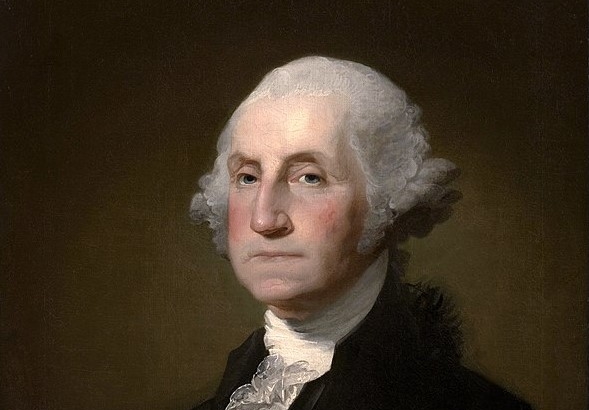Wisdom of the Founders: Framing a Constitution on Human Nature
How did the American Founders acquire the wisdom to frame a Constitution that has withstood many challenges to liberty and self-government for over two hundred years? Their deep interest in understanding human nature, derived from a careful study of history, allowed them to create a Constitution that both improved upon past constitutions and also anticipated future developments well beyond their time.
The American Founders studied ancient constitutions carefully, especially those of Greece and Rome, and sought to improve upon their imperfections. They found that these ancient regimes were all founded on unrealistic notions of human nature, which led the ancients to count on a degree of civic virtue that was either too high or too low. Many ancient regimes assumed that “there is not sufficient virtue among men for self-government; & that nothing less than the chains of despotism can restrain them from destroying & devouring one another.”[1] The Founders discovered that ancient democracies – or “petty republics” as Alexander Hamilton called them – too often vibrated between the extremes of anarchy and tyranny.[2] The defect in these ancient constitutions was a lack of institutions necessary to preserve both virtue and liberty; many lacked, for example, a proper separation of powers, adequate checks and balances, and important representative bodies such as a senate. Without proper constitutional arrangements, as James Madison observed, “Had every Athenian citizen been a Socrates; every Athenian assembly would still have been a mob.”[3]
The American Founders needed to improve upon these constitutional devices because they wanted to create a political system that balanced civic virtue with liberty. To accomplish this, they established a Constitution framed upon a more realistic notion of human nature – one that acknowledged and anticipated both the good and bad aspects of human motives. “As there is a degree of depravity in mankind which requires a certain degree of circumspection & distrust,” James Madison wrote, “so there are other qualities in human nature which justify a certain portion of esteem & confidence. Republican government presupposes the existence of these qualities to a higher degree than any other form.”[4] The Founders’ study of history revealed that in some fundamental ways, human nature never changes. Human beings are capable of being reasonable and therefore self-governing, but one should not ignore the propensity of mankind to pursue and abuse power for self-interested purposes. By framing a constitution upon a realistic understanding of unchanging human nature, they anticipated all sorts of new political developments: the forms of tyranny might change in the future, but the sources would not.
The American Founders applied what they learned from history and human nature to fix the defects of the Articles of Confederation. The glaring defect of the Articles of Confederation was the frequent failure of the state governments to abide by the terms of that compact – despite the fact that they had all promised to do so. States often refused to pay their share of revenue for the good of the Union, violated international treaties, and exercised other powers that were prohibited by the Articles of Confederation. This led George Washington to observe in 1786, “We have errors to correct. We have probably had too good an opinion of human nature in forming our confederation. Experience has taught us, that men will not adopt & carry into execution, measures the best calculated for their own good without the intervention of a coercive power.”[5] The proposed Constitution, created by the Federal Convention of 1787 to correct these errors, was then submitted to the public for ratification.
The debate over ratification was also the greatest debate in history on human nature. Supporters and critics of the proposed Constitution – Federalists and Antifederalists – made insightful arguments learned from the lessons of history regarding human nature. The key to a good constitution, according to Antifederalist Brutus, for example, is establishing good representation. A virtuous citizenry is especially important under any constitution to check the self-interested abuses of power by elected representatives. “It is a truth confirmed by the unerring experience of ages,” wrote Brutus, “that every man, and every body of men, invested with power, are ever disposed to increase it, and to acquire a superiority over every thing that stands in their way.” This disposition to attain and abuse power, “which is implanted in human nature,” requires sufficient protections against potential tyranny.[6] “The principle of self-love, therefore, that will influence the one to promote the good of the whole, will prompt the other to follow its own private advantage. The great art, therefore, in forming a good constitution, appears to be this, so to frame it, as that those to whom the power is committed shall be subject to the same feelings, and aim at the same objects as the people do, who transfer to them their authority. There is no possible way to effect this but by an equal, full and fair representation; this, therefore, is the great desideratum in politics.”[7]
Federalist James Madison, considered to be the Father of the Constitution, agreed with Brutus on the fundamental difficulty of framing good government – the natural propensity of human beings, out of self-love, to put their private interest above the common good. In Federalist No. 10, Madison argued that a constitution must be framed on the understanding that men are prone by nature to become “factious,” and that the causes of faction are rooted in human nature. Factions are groups of people, according to Madison, united by a common interest or passion, who want to use political power to harm or violate the natural rights of others. From his careful study of history, Madison learned that factions have been “the mortal diseases under which popular governments have everywhere perished.” The causes of faction might only be eliminated, Madison argued, by eliminating liberty itself – in which case the “remedy” would be “worse than the disease.”[8] Rather than trying to eliminate the causes of faction, Madison’s solution was to frame a Constitution that acknowledged the likelihood of factions in politics, and sought to control their dangerous effects through the means of properly separating power and providing sufficient checks and balances between the branches of government. Madison’s insights into human nature led to important improvements to the science of politics and of constitution making.
The insights learned from history allowed the American Founders to infuse the Constitution with a wisdom that stretched far into the future. They understood well that so long as human beings are human beings, the possibility of tyranny will always exist. Even though new forms of tyranny might emerge, its causes remain the same. Because its foundation rested on an understanding of unchanging human nature, the Constitution has proven remarkably adaptable and capable of dealing with new challenges to liberty and self-government for over two hundred years.

Christopher C. Burkett is Associate Professor of History and Political Science, and Director of the Ashbrook Scholar Program at Ashland University.
Click here for American Exceptionalism Revealed 90-Day Study Schedule
Click here to receive our Daily 90-Day Study Essay emailed directly to your inbox
[1] Federalist No 55
[2] Federalist No. 9
[3] Federalist No. 55
[4] Federalist No. 55
[5] George Washington to John Jay, August 15, 1786
[6] Brutus No. I
[7] Brutus No. IV
[8] Federalist No. 10



I wish the entire United States in world would take your course!
Thank you for your good work
What degree do you think Madison through Witherspoon and Hamilton through New York’s elite ( dutch reform ) were affected by Calvinist concept of depravity of human nature? or as David writes PS. 51 I was sinful at birth even conception ? Samuel Langdon president of Harvard addresses one area of historical government not in the federalist papers the Hebrew Republic ? Was pres. Langdon right to apply this model to the United States ? Ezra Stiles president of Yale seems to support this concept is the United States a biblical type of nation? Do you agree ?
The federalist papers seems so comprehensive and predict Civil War and other problems in the United States development don’t they fit the category of a type of prophecy more than even just foresight ?
The farewell address of Hamilton and Washington seems to convey that without religion or at least moral faith the constitution would not be upheld ( also the view of adams etc ) . Isn’t too much credit being applied to Madison when he’s writing in the pen name of Hamilton (H) who Oan overseeing and writing the bulk of the essays ? Furthermore in federalist 10 it’s the southern slave faction that takes over the government as a majority power for 60 years and Madison does nothing significant to prevent civil war . Madison / Jefferson’s Kentucky / Virginia resolutions legalized secession. And before that both H and Jay predict Civil War between north and south in multiple essays with the north prevailing? Jefferson enslaved his own children and to my knowledge Madison never proposed even a 100 year gradual emancipation of slaves to the role of employees? It would seem to be critical to view the constitution through the lens of the Civil War and subsequent wars of the United States and various corrections of the constitution through amendments? Has the United States tried to legislate the bulk of Americans into just and good people, isn’t this what Moses tried to do in the Bible which fell short without a powerful dose of grace? Weren’t the bulk of the founding fathers who wrote the constitution fluent in the Bible and if so how can we expect to maintain the constitution without a greater reliance upon God? United States is beleaguered by addiction problems, obesity psychiatric disorders, cognitive decline crime and violence, doesn’t suggest that something has gone wrong with the connection between the constitution preamble and purpose to promote the general welfare of the people? Maybe be too many lawyers and not enough experts on human well being ?